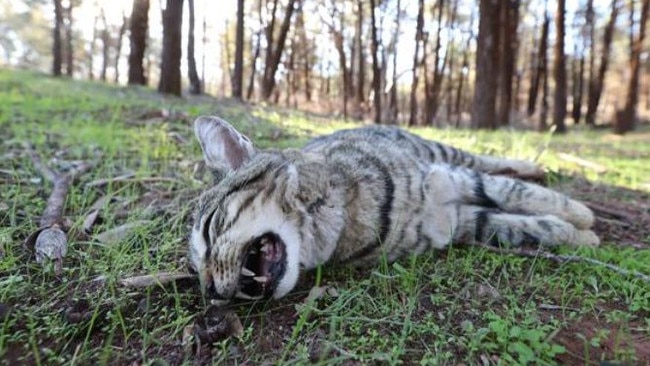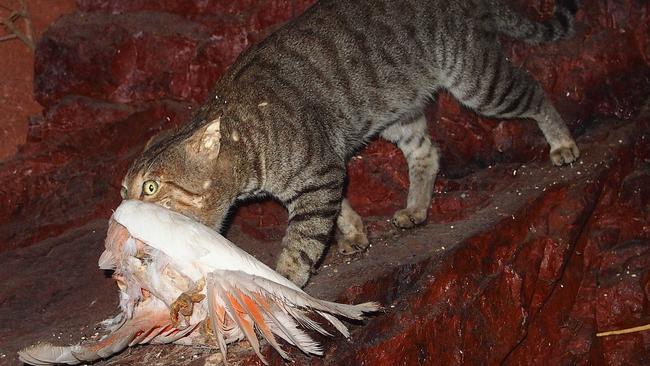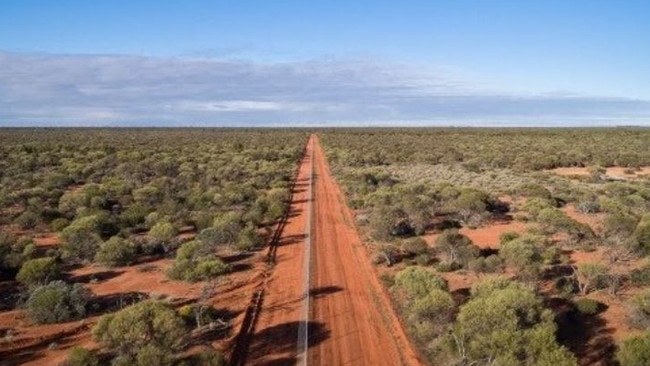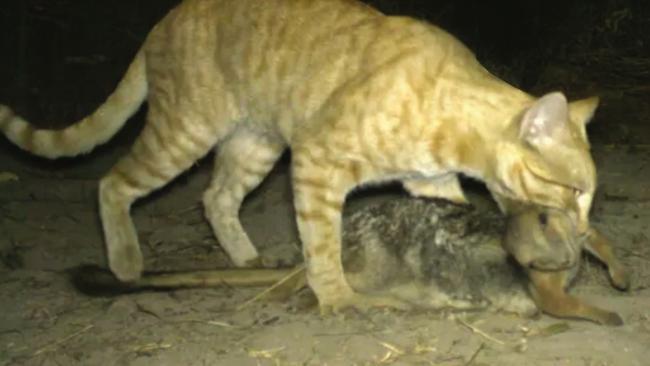Qld says no to national plan to use dingoes to cull feral cats
Queensland has rejected a $60 million federal feral cat plan over a dingo clause, sparking national outrage as conservationists warn of rising threats to native wildlife. | GRAPHIC IMAGES

News
Don't miss out on the headlines from News. Followed categories will be added to My News.
Queensland has found itself in the doghouse with environmental advocates after refusing to join a national plan aimed at eradicating feral cats.
The plan, designed to tackle a crisis responsible for the deaths of more than two billion native animals annually, enjoyed unanimous support from other states.
But Queensland baulked at a contentious clause proposing the reintroduction of dingoes or wild dogs as natural predators to control feral cat populations.

The decision has raised alarm bells across the country, particularly among wildlife experts, who have accused the state of playing a high-stakes game of “cat and mouse” with its unexpected refusal to sign the national Feral Cats Abatement Plan.
Wildlife experts who view the feral cat problem as one of the most pressing environmental crises in Australia say Queensland’s rejection of the national plan threatens to undermine progress made by other states and territories.
They claim the stakes are high, with feral cats continuing to wreak havoc on Australia’s native wildlife, slaughtering bilbies to the rare bridled nail-tail wallaby.
The Invasive Species Council claims the ecological damage is compounded by economic losses, including the spread of diseases such as toxoplasmosis, which affect both livestock and human health.
Environment Minister Andrew Powell said he was concerned about the national proposal describing it as “reckless and incompatible” with the state’s priorities.
“We’re not going to solve one problem by creating another,” Mr Powell told media.
“Queensland spends millions keeping wild dogs out of our landscapes. Reintroducing them to combat cats is a non-starter.
“We’ve already invested heavily in pest control programs, from wild dog fencing to targeted baiting operations.
“We’ll continue to act decisively without being tethered to a flawed national plan.”

The decision has thrown a wrench into what many saw as a rare opportunity for national unity on wildlife conservation and feral controls.
Invasive Species Council advocacy director Jack Gough said Queensland would be left chasing its tail over the feral cat problem and had missed an opportunity to shape the eradication plan to its liking rather than walking away entirely.
He said the plan was years in the making and offered a joint $60 million federal investment along with a unified approach to one of the biggest drivers of extinction in the country.
“Queensland’s withdrawal undermines the process and risks leaving critical habitats unprotected,” he said.

“This wasn’t about forcing dingoes into every solution as there were multiple tools on the table and dialogue could have addressed the concerns.
“Without a cohesive, funded strategy, the state might be chasing it tail but we’ve seen these disputes resolved before.
“What’s needed now is leadership and a willingness to find common ground.”
Despite the fur flying, both sides have left the door open to reconciliation with Mr Powell suggesting Queensland could reconsider its position if the dingo clause were removed from the national plan.
“We’re willing to collaborate, but we need assurances that the solutions won’t create new risks,” he said.
More Coverage
Originally published as Qld says no to national plan to use dingoes to cull feral cats





